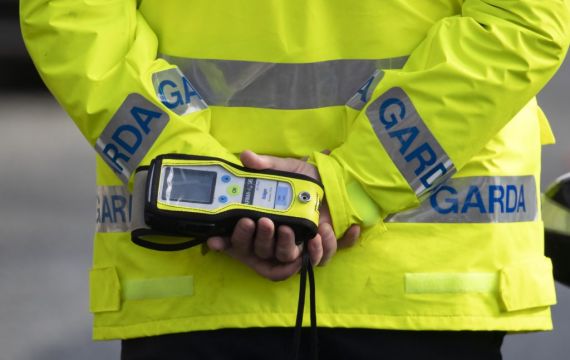The Court of Appeal has quashed a lifetime driving ban imposed on a dangerous driver who received a fully suspended sentence for causing the death of a 24-year-old woman 16 years ago, instead imposing a reduced disqualification of 20 years.
The three-judge court also found that had Brian Kelly's appeal been lodged closer to the time of the offending behaviour, his suspended sentence would have been quashed, and a custodial sentence would have been “all but inevitable”.
Kelly (43), of St Brigid’s Place, Portlaoise, Co Laois, was sentenced to two years in prison, suspended for a period of two years, on December 15th, 2009, by Judge Anthony Kennedy sitting at Portlaoise Circuit Criminal Court after pleading guilty to dangerous driving causing the death of Claire Hennessy on October 18th, 2008, contrary to section 53 of the Road Traffic Act 1961.
He was also disqualified from holding a driving licence for life.
A Garda forensic collision report carried out at the time noted speed and alcohol intake were the sole reasons for the fatal incident.
Kelly, who was 26 at the time of the crash, had appealed his sentence, arguing the imposition of a lifetime driving disqualification represented an error in principle on the part of the sentencing judge.
Delivering judgement at the Court of Appeal on Monday, Ms Justice Tara Burns said in light of the fact that lifetime disqualification orders are only appropriately imposed in exceptional cases, usually involving repeat offending which did not arise in this case, the court was of the opinion that the sentencing judge erred in imposing the lifetime ban.
Quashing the original suspended jail term and proceeding to resentence Kelly, Ms Justice Burns said had the court been imposing sentence closer to the time of the offending behaviour, a custodial sentence would have been “all but inevitable”.
However, she said, as almost 16 years have passed since the incident, it would “simply be unjust” to impose a term of imprisonment at this stage.
Resentencing
The three-judge court quashed the lifetime driving ban and imposed a 20-year disqualification from driving on Kelly before proceeding to resentence the appellant to two years imprisonment, suspended for two years.
Outlining the background to the case, Ms Justice Burns said Kelly had been drinking at home on the night of October 17th, 2008, when a group of friends, including Ms Hennessy, called to his house.
After a period of time, he volunteered to take her to a 24-hour service station to get cigarettes.
On the return journey, Kelly passed the entrance of the estate where he lived and shortly afterwards, on a left bend in the road with a speed limit of 50km/h, his vehicle crossed onto the incorrect side of the road and mounted the footpath before becoming airborne for a distance and colliding with the outer block wall of an apartment building.
Emergency services were called, Ms Hennessy showed no vital signs at the scene and was later pronounced dead.
Kelly, who was also seriously injured, spoke to gardaí, who detected a smell of alcohol. A blood sample taken and revealed a concentration of 172 milligrams of alcohol per 100 millilitres of blood.
Two residents from the area described hearing a car approaching the area at speed with “the engine roaring” before hearing a loud bang.
Kelly was arrested and was unable to recall driving at or immediately before the collision during interview, but confirmed he had been drinking at home and that he drove the deceased to get cigarettes.
Colm Hennessy BL, for Kelly, argued the indefinite disqualification period of life was a barrier to the appellant’s continued rehabilitation. He said the lifetime driving ban was so restrictive that it amounted to an indefinite punishment and was therefore wrong in principle.
Will Fennelly BL, for the Director of Public Prosecutions, said to interfere with the lifetime disqualification “is to render the sentence imposed by the court at the time completely unbalanced”.
“It would undoubtedly make it unduly lenient,” he added.







